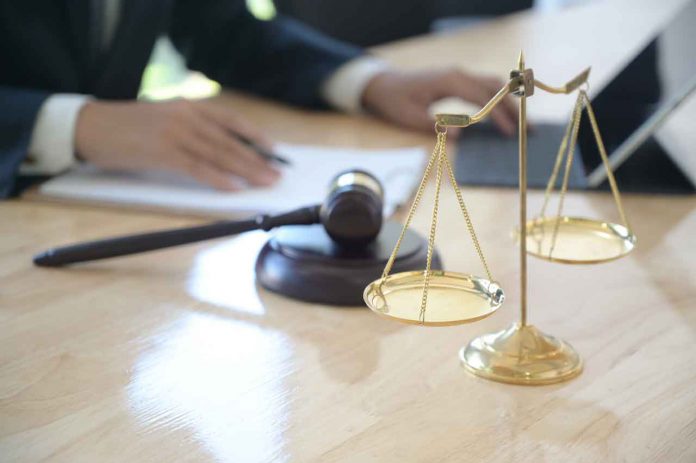In the heart of the Gulf Coast region, Pearland, Texas, is not just a rapidly expanding suburb of Houston but a community where the well-being and safety of its residents are of paramount importance. As this thriving city continues to grow, so does the complexity of navigating through personal legal matters, particularly those involving personal injuries and accidents. Pearland’s diverse landscape, from bustling commercial centers to serene residential areas, presents various scenarios where mishaps may occur.
In such cases, an experienced lawyer, like the ones at Dehoyos Accident Attorneys, can greatly impact your chances of receiving the compensation you’re entitled to. It’s vital to maintain transparent communication with your lawyer to effectively build a case and maximize your chances for a favorable outcome. This article will delve into nine topics that you should cover with your personal injury and accident attorney.
1. Share all Pertinent Information
When talking about your case with your attorney, make sure to provide them with all available details regarding your accident or injury. These specifics could include the date, time, and location of the incident, as well as any conversations or interactions that took place beforehand. Be upfront about any injuries sustained and the medical treatment you’ve undergone so far. By sharing these details, you help your lawyer grasp the scope of your situation, allowing them to construct an argument on your behalf.
2. Understand Your Legal Entitlements
As someone who has suffered from an injury or accident, it’s essential to have an understanding of your legal rights. Your lawyer will assist you in this area by clarifying which rights are pertinent in your specific circumstances. They can assist you in determining if you qualify to seek compensation for treatment costs, lost income, or emotional distress due to another party’s negligence or harmful behavior.
3. Explore Available Legal Options
During your meeting with your personal injury attorney, take the time to discuss all potential avenues for pursuing legal action effectively. Drawing on their experience with similar cases, your lawyer may suggest strategies to help optimize the compensation based on their evaluation of your individual circumstances.
4. Understand Legal Processes
As your case progresses, inquire about the procedures involved in filing a claim for your injuries or initiating litigation if needed. Since each jurisdiction has its own set of rules governing these processes, seeking clarification from your attorney will facilitate navigation through all essential aspects of pursuing compensation.
5. Evaluate the Worth of Your Claim
Assessing the value of your claim is crucial in determining whether pursuing action is a viable option. Your personal injury lawyer will take into account factors like treatment expenses, lost wages, emotional suffering, pain and suffering, and future medical costs to estimate the value of your case. Have a discussion with your attorney about this assessment to establish expectations for both parties.
6. Talking about Legal Fees and Payment Arrangements
It’s important to talk about expenses right from the start. Understand how your personal injury attorney bills for their services: whether they charge by the hour or work on a contingency basis. Contingency fees mean you only pay your lawyer if they win your case. Make sure to discuss any additional costs that might come up during the legal process to avoid surprises later on.
7. Expectations for Communication
Effective communication between you and your attorney is crucial for the success of your case. Set expectations regarding how you’ll communicate, your preferred mode of communication (phone calls, emails), and the expected response time for any questions or concerns.
8. Evaluating Your Case’s Strength
Have a conversation with your personal injury and accident lawyer about the strength of your case. This involves reviewing the evidence you have, identifying any witnesses who can support your claim, and considering any precedents or laws that could influence the outcome of your case. Your attorney can assess both the strong points and potential weaknesses in your case and offer advice on how to improve your chances of reaching a favorable resolution.
9. Discussion on Negotiation Strategies and Settlement Options
When you talk to your attorney about your case, it’s important to cover negotiation tactics and possible settlement choices. Not every personal injury case ends up in court, and engaging in settlement talks can often result in a favorable outcome without the hassle of legal battles. Have a conversation with your lawyer about how they approach negotiations and their opinion on a settlement amount, considering the harm you’ve endured. Understanding their plan will help set expectations as you progress.
In Summary
Establishing clear lines of communication with your personal injury and accident attorney is key to achieving a favorable resolution in any legal matter. By sharing all details, grasping rights and processes, exploring potential avenues and the worth of your claim, setting clear communication standards, and discussing legal expenses, you can ensure both sides are aligned throughout the entire journey. Open communication fosters a collaborative relationship with your lawyer based on trust and openness while boosting the likelihood of receiving adequate compensation for your injuries or damages.







